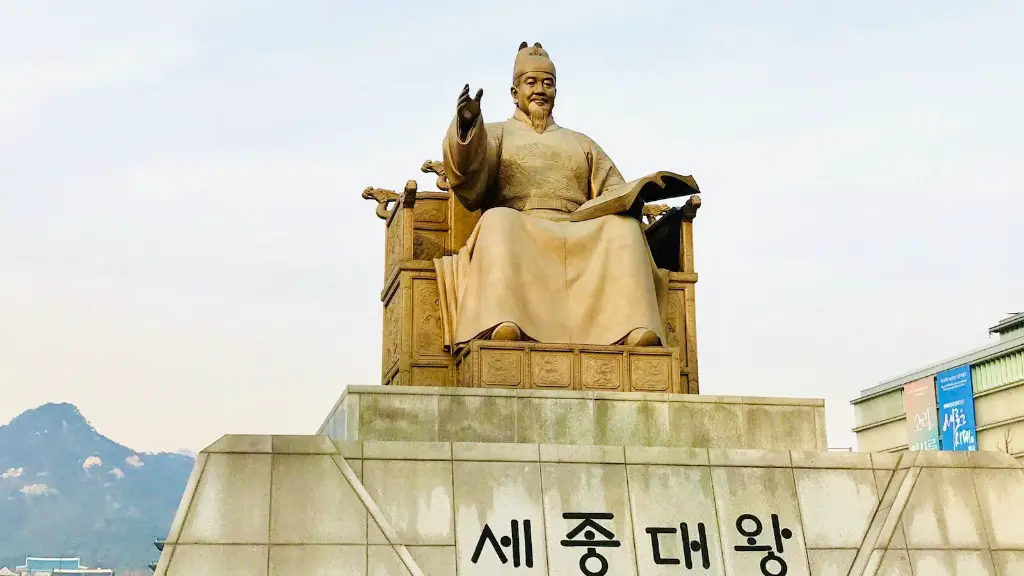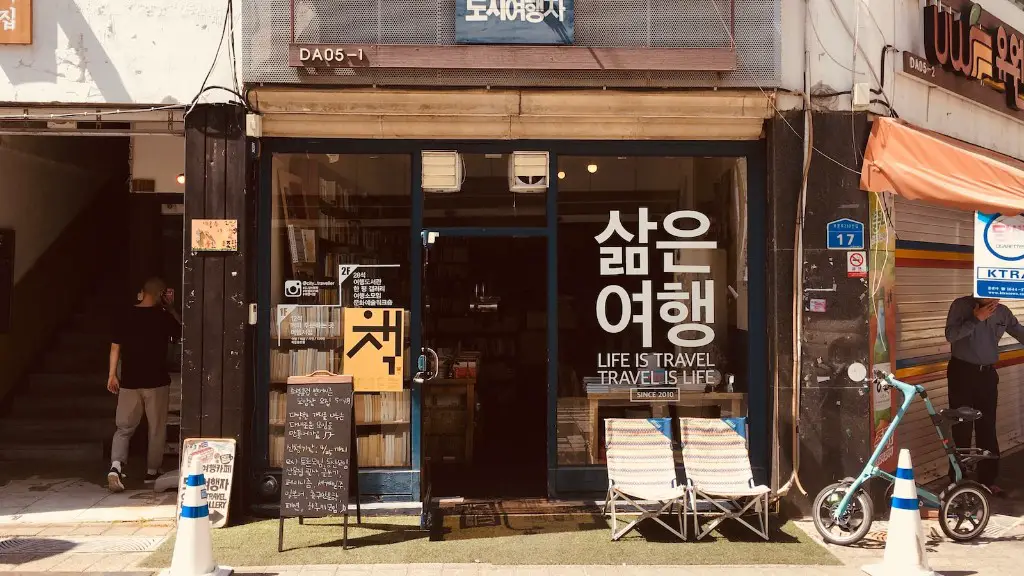Economic Challenges
North Korea is one of the poorest countries in the world, and the economic situation in the country is dire. The country depends heavily on aid from China and other countries. This has led to many North Koreans going hungry and not being able to access sufficient nutrition. Sanctions imposed by the international community have also exacerbated this, with many ordinary North Koreans being unable to afford basic goods. The United Nations has estimated that, in 2018, around 40 per cent of the population was undernourished.
North Korea also has a extremely weak infrastructure, with much of the country’s resources being focused on military projects. As a result, many North Koreans continue to lack basic necessities such as clean water and electricity. This has severely hampered development and slowed economic growth in the country.
Political Challenges
The political situation in North Korea is highly unstable. The country is currently controlled by a totalitarian regime and is often in a state of conflict with its neighbors, such as South Korea. The country has also been cited for numerous human rights violations, and its government has been accused of suppressing freedom and democracy.
The international community has largely been unable to resolve the situation due to the country’s isolation and insularity. This has been compounded by North Korea’s refusal to engage in diplomacy with other countries. North Korea refuses to recognize any external authority and is highly suspicious of any foreign interference. As a result, the international community has been unable to find a peaceful solution to the political and human rights issues in North Korea.
Regional Challenges
North Korea poses a threat to its neighbors due to its development of nuclear weapons. The country has conducted several nuclear tests in recent years, raising fears that it could use these weapons in a conflict with other countries. The country’s repeated threats to use nuclear weapons has led to tensions between the country and its neighbors, including South Korea and Japan.
The international community has attempted to resolve the situation diplomatically, but it remains stalled. North Korea continues to refuse to engage in meaningful dialogue and has been unresponsive to international demands to disarm its nuclear program. As a result, the situation remains unresolved and is a source of instability in the region.
International Challenges
The international community has been struggling to come to a consensus on how to address North Korea’s nuclear program. The United States has been pushing for a more forceful approach, while other countries have been advocating for a more diplomatic solution. Russia and China have been particularly vocal in advocating for a peaceful solution, arguing that the situation can be resolved through dialogue and negotiation.
The difficulty of the situation has been compounded by the United States’ recent withdrawal from the Iran nuclear deal. This has damaged the credibility of the US in the eyes of many countries, making it harder for the country to push for an effective resolution to the situation in North Korea.
Domestic Challenges
North Korea’s internal situation has been made worse by the oppressive rule of its government. The government of North Korea continues to restrict the basic rights of its citizens, and has been accused of widespread human rights violations. This has prompted many North Koreans to leave the country in search of better opportunities elsewhere.
However, this has led to a number of complications. The government of North Korea has been accused of exploiting its own citizens by working them in sweatshops and other exploitative environments. Additionally, many North Korean refugees have been unable to find refuge in other countries because of the country’s poor human rights record. This has led to a situation where many North Koreans are left without a safe place to go.
Media Challenges
The media has also played a role in exacerbating the situation in North Korea. Many news outlets have portrayed North Korea in a negative light, emphasizing its violations of human rights and its militaristic stance towards its neighbors. This has made it harder for the international community to come to a consensus on how to address the situation. Additionally, it has made it increasingly difficult for the average person to gain a nuanced understanding of the situation.
Military Challenges
The militarization of North Korea has also contributed to the difficulty of the situation. North Korea’s military is one of the largest and most powerful in the world, and the country has a large stockpile of weapons, including nuclear weapons, ballistic missiles, and chemical weapons. This has made the prospect of a peaceful resolution to the situation more challenging.
Additionally, North Korea’s military is an important source of income for the regime. The government of North Korea benefits financially from the sale of weapons and other materials, and it has been speculated that this money is used to fund its nuclear weapons program. This has made it difficult for the international community to exert economic pressure on North Korea.
Humanitarian Challenges
The humanitarian situation in North Korea is also extremely challenging. Many North Koreans are facing dire poverty, and the country’s lack of basic infrastructure has made it difficult for aid organizations to provide much-needed assistance. Additionally, the country’s oppressive regime continues to restrict the basic rights of its citizens and has been accused of suppressing freedom of expression and other fundamental rights.
This has made it difficult for the international community to provide aid to North Koreans. Humanitarian organizations often face logistical and political challenges when trying to provide assistance to North Koreans in need. Additionally, the country’s oppressive regime often blocks aid from reaching those who need it the most.
Legal Challenges
The legal status of North Korea is also a source of confusion and uncertainty. North Korea is a member of the United Nations, but its status is complicated by the United States’ designation of it as a state sponsor of terrorism. This has made it difficult for the international community to take any concrete action against North Korea, as doing so could trigger a response from the US.
Additionally, North Korea is not a signatory to any major treaties or conventions, which has resulted in the international community having limited recourse when it comes to holding the country accountable for any violations. This has made it difficult for the international community to use the legal system to seek justice for victims of human rights abuses in North Korea.
Conclusion
North Korea is one of the most challenging situations the international community has had to face in recent years. The country is plagued by economic, political, regional, international, domestic, media, military, and humanitarian issues. Furthermore, its legal status has complicated matters, making it difficult for the international community to reach a consensus on how to effectively address the situation. It is clear that North Korea’s problems cannot be resolved overnight, and it is going to take significant effort and cooperation from the international community to achieve a lasting solution.


